#mr rochester
Text
The many uses of a Byronic Hero
chair ( Jane & Edward - Jane Eyre)
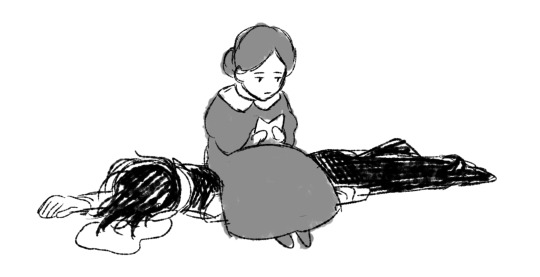
Pillow ( Christine & Erik - Phantom of the Opera)

Car ( Catherine & Heathcliff - Wuthering Heights)

Water dispenser ( Edith & Thomas - Crimson Peak)

#jane eyre#mr rochester#edward rochester#charlotte bronte#classic litterature#gothic romance#crimson peak#gothic fiction#victorian gothic#wuthering heights#heathcliff wuthering heights#Phantom of the opera#Thomas Sharpe#edith cushing#erik the phantom#erik destler#byronic hero
2K notes
·
View notes
Text


Autumn always feels like the perfect time to reread Jane Eyre, so, have some Jane and Mr. Rochester (though I've made him too cute, so, any other Brontë or Austen couple is also possible) 🍂
Mmm, I hope one day I'll manage to paint a colorful landscape and be happy with the result...It's so much easier in black and white :')
#my art#illustration#traditional art#illsutration#english literature#jane eyre#charlotte bronte#mr rochester#english countryside#watercolors
2K notes
·
View notes
Text
You’re in her DMs, I’m screaming her name across the moors and she somehow hears me. We’re not the same.
#jane eyre#ask mr rochester#mr rochester#mr rochester of thornfield#ask blog#charlotte bronte#classic literature#victorian literature#the bronte sisters#gothic romance#dark acadamia aesthetic#books#wuthering heights#literature#literature rp#reading#19th century#emily bronte#victorian era#dark academia
4K notes
·
View notes
Text




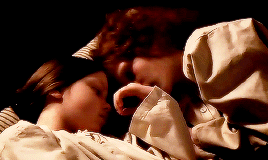
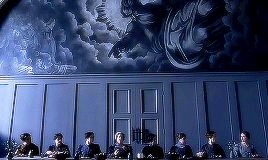

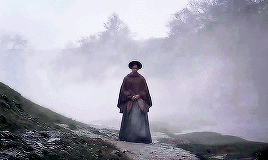




You're lucky, Miss Eyre. If you do not love another living soul then you'll never be disappointed.
JANE EYRE | Episode 1 | 2006.
#jane eyre#jane eyre 2006#period drama#perioddramaedit#perioddramasource#periodedit#perioddramagif#onlyperioddramas#tvedit#filmtv#cinematv#adaptationsdaily#bookstofilms#charlotte bronte#ruth wilson#toby stephens#mr rochester#*mine
478 notes
·
View notes
Text
The scene where Jane plans to have Rochester sing for her as a distraction so she doesn’t have to get all romantic with him in the evening is gold. She’s like “play me a song😊” and Rochester is like “no I’m not in the mood let’s cuddle😔👉👈” and then Jane is like “I’ll have to resort to flattering his ego😐…” and says “but I really want you to play me something🥰”, and Rochester is all like, “oh do you like my singing😏” and she’s like “yes😍”. Then Rochester gets all excited and says he’ll only sing if she accompanies him on the piano which Jane does. She attempts to play but remember Jane can only play “a little” and Rochester literally shoves her off the stool and calls her a “little bungler😏” and does a solo.💀Jane is all happy she didn’t have to play and was like “yay my plan worked hehe” then goes to sit by the window and listen. Rochester drops a banger romantic song about Jane, then gets extremely turned on by the end of the song. He passionately walks over to Jane with some heat in his eyes ready to kiss Jane then she dodges the kiss and is like, “who’s the song about? cuz it ain’t me🤷♀️” Rochester is like 👁️👄👁️🫵. Then Jane goes “certainly not me you said the lovers will die together… what a selfish idea I’m twenty years younger than you sir why do I have to die when you die?🤨”. Rochester is like “I’m sorry Jane please forgive me with a kiss?🥺👉👈” and Jane goes “I’d rather not😐🤚” LIKE IM WHEEZING THEY ARE SO FUNNY IN THIS SCENE💀 Rochester calls Jane some kinky pet names after this like “hard little thing😒” and Jane gets all happy bc she is like “he’s annoyed with me good!🤭” Meanwhile Rochester is 100% into this type of treatment from Jane, he’s like “mark me down as annoyed🙄 and turned on🥵”
403 notes
·
View notes
Text

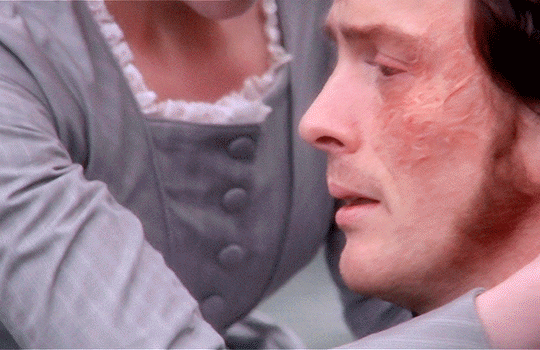
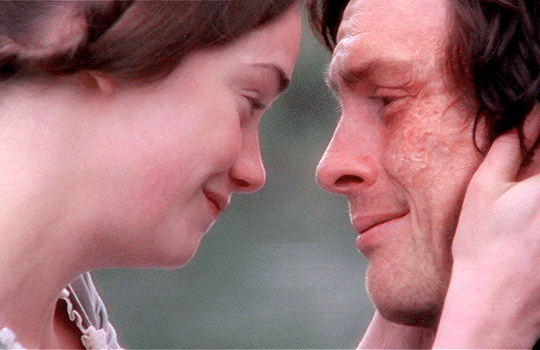
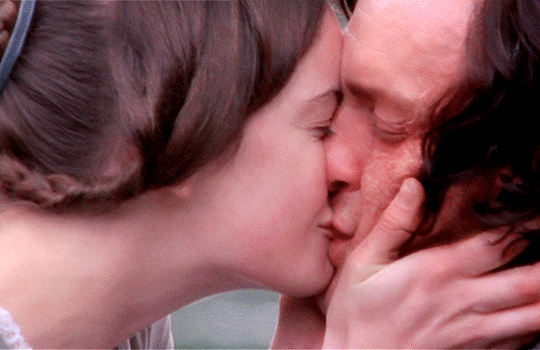



Yet after all my task was not an easy one; often I would rather have pleased than teased him. My future husband was becoming to me my whole world; and more than the world: almost my hope of heaven. He stood between me and every thought of religion, as an eclipse intervenes between man and the broad sun. I could not, in those days, see God for His creature: of whom I had made an idol.
#jane eyre#jane eyre 2006#janeeyreedit#perioddramaedit#periodedit#litedit#bronteedit#ceremonial#weloveperioddrama#dailyfilmtv#romancegifs#mr rochester#edward rochester#ours#lívia#*gifs
370 notes
·
View notes
Text


this is what went on inside their heads
#jane eyre#mr rochester#jane eyre 2006#charlotte brontë#brontë#eyreposting#ruth wilson#toby stephens
429 notes
·
View notes
Text
"Rochester is problematic" yes?? that's the point? There's literally a bit in the book when Rochester tells Jane that he thinks she could fix him and she tells him that he should fix himself. And later in the narrative, when he's made the decision to work on himself and feels regret for his past actions, only at that point does Jane marry him. The point is that Rochester is a deeply flawed man who needed to realise that he had the capacity to improve on his own, without asking someone else to make him into a better person.
423 notes
·
View notes
Text
Fictional Men Ranked Least to Most Likely to Eat Pussy
When I’m bored my powers turn to evil. Happy to announce that @earlymodernlesbian is not only is an enabler but wrote a gay companion piece which you can and should read here!!!!
10. Mr. Rochester — Jane Eyre
No chance of oral here. Sorry, I don’t think he puts Jane first once in this book. She’s too busy being a ministering angel to ever consider anything above and beyond her wifely duty and I don’t think Rochester ever really stops being a narcissist long enough to consider her desires or even, you know, her life. I bet his french mistress asked him to do it once and he was like “ew, no”
9. Rhett Butler — Gone With the Wind
Rhett says shit like “you ought to be kissed and by someone who knows how,” and then I bet would go down on you one time just to show you what you were missing out on, and then he’d tease you about how much you liked it for months afterwards and refuse to do it again. Imagine how much more normal Scarlett might have been if she was getting regular oral.
8. Konstantin Levin — Anna Karenina
Definitely knows about eating pussy and can’t stop thinking about it. I think he might even shamefully obsess about it in conjunction with his dirty peasant laborer fantasies. However, he also has the ascetic monk thing going on so I bet he hardcore represses his desires to actually do it. That being said, I think if he ever got over himself he’d be way into it.
7. Mr Darcy — Pride and Prejudice
I’m not convinced Mr. Darcy even knows going down on girls is a thing, but once Bingley had filled him in I bet he would try it. Elizabeth I’m sure would not object but I can’t see this happening more than once or twice.
6. Oliver Mellors — Lady Chatterley’s Lover
Mellors has the distinct advantage and disadvantage of being the only character from a book that actually describes sex acts. If it was based solely on what he said (being turned on by getting women off, not shutting up about Connie’s ass, talking about how much he wants a “real” woman with a “real” body), I’d say absolutely he wants to get down there and would use the cringiest words possible to describe it. However, they textually do almost everything else so I feel like if he ate her out DH Lawrence would have told us 😔
EDIT: he goes down on her in the most recent movie!!! vindicated
5. Jonathan Harker — Dracula
Jonathan is obsessed with Mina (rightfully) and loves her to the end of the earth, so of course he’d do anything for her, including eat her out. However, there’s so much putting women on goddess pedestals in Dracula that he might just like, repeatedly kiss her between her legs and and be like, “am I doing this right?” and Mina would be like “I love you so much Jonathan” but she wouldn’t actually get off, you know?
4. Heathcliff — Wuthering Heights
Someone who is willing to dig up your grave would definitely be down to lick your pussy. Cathy and Heathcliff are so rabid about each other I bet oral is like, one of the least weird things they would have done to each others bodies if they had the chance
3. Gabriel Oak — Far from the Madding Crowd
Not intimidated by Bathsheba’s independence and position of power. Could take care of her and spoil her if she ever let him and they both know it. Plus, not afraid to get down and dirty and do farm work for her. If a man cures your sheep and saves your hay before a storm, what else will he do for you? 👀
2. Mr. Knightley — Emma
Mr. Knightly is the definition of a service top. 100% confident in his masculinity and completely comfortable putting Emma’s needs and wants first, but not gonna let her get away with being high and mighty. Excellent combination of obsessed with her but still in charge. ;) She would get neurotic about it and he would tell her to chill out and he’d be right.
1. George Emerson — A Room with a View
George chugs his respect women juice and is so turned on by the idea of women as individuals with unique desires he can’t stand to see Lucy betray herself by marrying a robot. “I want you to have your own thoughts even when I hold you in my arms” ?!? “The desire to govern a woman lies very deep, and men and women must fight it together before they shall enter the Garden” !! What’s not to love about a pro-Eve humanist who enjoys swimming naked and is constantly telling everyone to be less embarrassed about desire and the body? No question George is going to be eating Lucy out every day of their lives and getting off on it himself.
Bonus:
Marius Pontmercy — Les Misérables
Shy, but also French. Not sure which one wins out here.
#pride and prejudice#emma#wuthering heights#a room with a view#far from the madding crowd#gone with the wind#anna karenina#lady chatterley's lover#dracula#jonathan harker#mr darcy#heathcliff#rhett butler#jane eyre#mr rochester#marius#les mis
2K notes
·
View notes
Text
Why Mr. Rochester and Bertha Mason Couldn't Get a Legal Separation; or, the Utter Madness of Marital Laws
So I saw a Jane Eyre post discussing why Mr. Rochester and Bertha Mason couldn't get a legal marital separation. I've thought a lot about this topic, and in order to procrastinate writing the final for my upper-level Brontë class, I've decided to write this sort of convoluted analysis instead. I know many others have written about this subject, but I wanted to explore a bit further on my own.
Preliminary context about me, the Brontës, their Byronic inspiration, etc.: I've learned a lot about 19th century British marriage laws recently in my classes on old British literature, as well as by having studied Byron, whose marital separation in 1816 was a notorious part of his history & also reverberated through 19c literature. He refers to this separation in many of his works, most famously in his notorious poem "Fare Thee Well." Harriet Beecher Stowe, the most famous American female writer at the time, was friends with Lady Byron and wrote a book defending her called "Lady Byron Vindicated: A history of the Byron controversy from its beginning in 1816 to the present time" (the original callout post).
Insanity accusations did factor in to Byron's separation. Many scholars have remarked how the Queens of Byronic Criticism, the Brontë sisters, took significant inspiration from their well-worn copy of Moore's biography Life of Byron when creating their works. The Brontës would have been very familiar with marriage laws not only due to their knowledge of Byron's trainwreck of a marriage, but also due to being well-educated women at the time who knew that marriage was the most important economic decision of one's life and could very well make or break a person. As a result, marriage plays a significant role in their novels.
More relevant preliminary context about the novel: Jane Eyre actually takes place in the Georgian era, despite most adaptations and anaysis presenting is as a Victorian piece due to the novels publication date (this drives me crazy; same goes for the other Brontë books). Marriage laws did not change drastically from the time the novel is set to the time Brontë was writing the novel, but things were a bit different socially. Rochester was also married 15 years before his attempt to marry Jane. According to this very good analysis, Rochester and Bertha probably married in or around the year 1793: https://jane-eyre.guidesite.co.uk/timeline.
Now, here are the reasons why Rochester couldn't separate from Bertha:
1) Insanity wasn't grounds for divorce/separation in the Regency era.
Rochester himself says that he couldn't legally separate from her because of her insanity, which presumably rendered any of her faults null on the grounds of that marital vow "in sickness and in health." This is possibly one of his biggest reasons:
"I was rich enough now – yet poor to hideous indigence: a nature the most gross, impure, depraved I ever saw, was associated with mine, and called by the law and by society a part of me. And I could not rid myself of it by any legal procedings: for the doctors now discovered that my wife was mad — her excesses had prematurely developed the germs of insanity [..]"
2) Divorce was nearly impossible anyway.
There had only been around 300 divorces in English history at the time. Almost all of them were husbands divorcing their wives for committing adultery. Only a handful of divorces had succesfully been obtained by women, and they were only in cases where the husband had committed incestuous adultery or bigamy, and was extremely physically cruel. So technically after his bigamy attempt, Bertha may have had more grounds to obtain a divorce than Rochester would have, if only she were lucid enough to do so. However, in that scenario infertility would have helped their case, and Adèle's existence would have harmed their case if he attempted to seek a divorce before marrying Jane. Though as the novel explains, Adèle is probably not his, she definitely would have been used against him, as would the fact that he kept Bertha's existence a secret in England. But he wouldn't have tried for divorce that late in the game anyway, considering it was one of the most difficult options.
3) Female adultery was your best bet at divorce or separation, and this probably wasn't applicable to Mr. & Mrs. Rochester.
Although some scholars claim that there is subtext hinting that Bertha was adulterous (which some adaptations, like the 2006, include), you needed substantial proof of the adultery, which Rochester may not have had if it did occur. Being a proud man, he also wouldn't have wanted to be humiliated in that way by letting it be publicly known (as shame is one of his main reasons for hiding their marriage to begin with).
However, I lean toward the idea that Bertha may not have committed adultery. If she definitively did, seeing how affected Rochester was by Céline cheating on him (he shot her lover in revenge and left her with a stipend), if he ever suspected adultery on Bertha's part then I'm sure he would have been at court the very next day. I also think Rochester tries not to be too much of a hypocrite, and he is well aware that he himself is an adulterer, so he probably doesn't want to accuse Bertha of a crime he's committed and which he couldn't definitively prove she did.
Rochester does talk about hating Bertha's "vices" when they lived together, citing drinking, arguing, cruelty to servants, cursing, her being "unchaste," a "harlot," etc. - the last epithets, combined with her supposed lack of morality, and her being described as seductive, heavily imply that adultery could be added to her list of offenses. However, if she did truly cheat on him as well, I don't see why he wouldn't plainly tell this to Jane as well. I would imagine it would be his first complaint, and it would probably be considered his most justifiable reason against her by their cultural standards.
I don't see why he wouldn't jump to take Bertha's infidelity as an opportunity to defend his own actions, considering how open he is with Jane about his own adultery and being cheated on by Cèline Varens. While I can see how some of the textual evidence may strongly suggest Bertha's adultery, we cannot be fully certain, and that may be because Rochester himself is not fully certain. I cannot see why he wouldn't have sought legal advice on that account alone.
In short, if Bertha was an adulterer, there must have been no evidence to convict her.
Also: while the double-standard may seem odd and trivial to us, the reason why female adultery held more weight than male adultery has entirely to due with old patriarchal inheritance laws; i.e the risk of a wife getting extramaritally pregnant and passing the illegitimate child off as her husband's heir was considered too great of an affront. A man could have as many bastards as he wanted because he would know they were bastards and were not at risk of inheriting his stuff. One needed legitimate heirs to justify passing on one's ancestral wealth to. Essentially, marriage was a mere economic tool, and the economy was and is inherently patriarchal. I digress.
4) Rochester's lack of social & economic leverage, and risk of social ruin in general.
Only the wealthiest of the wealthy could obtain divorce or official separation, and it often led to social ruin. Rochester is rich, but he has no title and no great network of supporters due to being a younger son and having been abroad for most of the past 15 years (this was the length of his marriage to Bertha, stated by Mr. Briggs during the bigamous wedding attempt). He doesn't have as much leverage as Lord and Lady Byron had.
To continue on official separation, like Lady and Lord Byron obtained. Just like divorce, this was also a messy and scandalous legal proceeding, and required numerous good reasons to obtain, and being well-connected Lords and Ladies really helped your case. You also needed many witnesses and written statements as evidence. Bertha's family, as we see with Mason, would have been unhelpful to Rochester, and due to his shame and secrecy, no one could really testify on his behalf I'm assuming.
5) Unofficial separation would have been inconvenient, especially in regards to living situations.
Aside from divorce, which was extremely rare, extremely controversial, and only for the wealthiest members of society — there were unofficial and official separations. An unofficial separation was simply living apart from one another. I've often wondered why Rochester didn't simply move Grace Poole and Bertha somewhere else, but my main theory is that it would have been cost ineffective, and due to his family who were implied to be shitty, he probably really didn't want to live at Thornfield anyway so thought it would be convenient to place her there. Rochester says it would be dangerous to place her in his other residence of Ferndean:
"[..] though I possess an old house, Ferndean Manor, even more retired and hidden than this, where I could have lodged her safely enough, had not a scruple about the unhealthiness of the situation, in the heart of a wood, made my conscience recoil from the arrangement. Probably those damp walls would soon have eased me of her charge: but to each villain his own vice; and mine is not a tendency to indirect assassination, even of what I most hate."
6) Annulment was likely impossible given their circumstances.
Annulment means evaporating the marriage, acting as if it never existed, that it was a mistake. This was rare and only granted in unique circumstances, and I believe it was more common with aristocracy and royals. I believe you could possibly get an annulment if you could prove that the spouse was insane at the time of the wedding and you did not know. However, Bertha did not begin to truly deteriorate until after they had been living together for a bit. And while Rochester says that he did not know her mother was in an asylum until after the wedding, having an insane mother doesn't mean that you are insane, which Bertha clearly wasn't at that point, at least not in a way that people would have publicly acknowledged, since Rochester says she attended parties and her hand was highly sought after.
Generally, the longer a marriage had gone on, the harder it was to prove why it could not go on. Rochester says that he and Bertha "lived together" for "four years" in Jamaica while her condition deteriorated and he tried to make things work. And again, after the wedding he found out her mother was "mad, and shut up in a lunatic asylum." So we have more reasons for Rochester's difficulty: the fear of Bertha going to an asylum while she was still mostly lucid in those first four years, combined with the fact that they openly lived together and certainly must have consummated their marriage (things which would further prevent annulment), and were certainly publicly recognized as a couple in Spanish Town society, and her family wanting the marriage to continue so she could have children of "good race" i.e. to produce heirs.
Here's an important passage that to me suggests that Rochester and Bertha not only had an initial flirtation but likely consummated their marriage, likely had a passionate sexual relationship for some time, and likely implies his feelings for her were more complex than we'd initially assume, making annulment not so clear-cut of an option to him at the time:
"My father said nothing about her money; but he told me Miss Mason was the boast of Spanish Town for her beauty: and this was no lie. I found her a fine woman, in the style of Blanche Ingram; tall, dark, and majestic. Her family wished to secure me because I was of a good race; and so did she. They showed her to me in parties, splendidly dressed. I seldom saw her alone, and had very little private conversation with her. She flattered me, and lavishly displayed for my pleasure her charms and accomplishments. All the men in her circle seemed to admire her and envy me. I was dazzled, stimulated: my senses were excited; and being ignorant, raw, and inexperienced, I thought I loved her. There is no folly so besotted that the idiotic rivalries of society, the prurience, the rashness, the blindness of youth, will not hurry a man to its commission. Her relatives encouraged me; competitors piqued me; she allured me: a marriage was achieved almost before I knew where I was. Oh, I have no respect for myself when I think of that act! — an agony of inward contempt masters me. I never loved, I never esteemed, I did not even know her."
7) Spousal abandonment wasn't possible, and on some level he honored his legal and financial obligations to her and the Mason family.
Bertha's family likely refused to house her for legal and personal reasons, and spousal abandonment was forbidden due to the husband's financial responsibility as well as the law of coverture (a wife became her husband's full legal responsibility; some say "property"). Like we see in Anne's Tenant of Wildfell Hall, if a woman ran away from their spouse they would have to live in obscurity and be at risk of being sussed out. You couldn't just abandon your partner. Still, people did, because it was the easiest route to take.
But the more upper-class you were, and the more financial entanglements you had, the more inconvenient this was. We know that Rochester and his family became enmeshed with the Mason family, and he got a lot of money from Bertha, so her father likely would have taken him to court. At any rate, Rochester was legally bound to bring Bertha with him to England when he left Jamaica. If he attempted to abandon her in Jamaica, the backlash it would have brought would have brought him social ruin and foiled his chances at getting away with any bigamy attempts.
All this brings us to a further notice of Bertha's family situation. Based on Charlotte Brontë's positive comments about Rochester's character (https://www.tumblr.com/burningvelvet/731403104856195072/in-a-letter-to-w-s-williams-14-august-1848) I see no reason to suspect him, like many feminist critics do, of being an unreliable narrator or of lying about Bertha Mason's history. Everyone is entitled to their opinions, and in mine, that is simply not the novel Charlotte wrote. By her own admission, she wanted his narrative to be a path to further goodness.
It makes no narrative sense for our explanation of his and Bertha's history to be full of lies when he's trying to make ammends with Jane, who never suspects him of lying during his admission, but who does critique him and figure he'd tire of her like she was one of his many mistresses. Jane wonders if Rochester would lock her in an attic too, which he refutes on the basis that he loves her more than he loved Bertha when she was sane, and so he would care for Jane himself. Jane also tells him that it's not Bertha's fault that she's mad. So in my opinion, if Charlotte wanted us to believe Rochester was lying about his and Bertha's history to make himself look better or Bertha look worse, I don't see why she would have been vague about it, and I don't see why Jane wouldn't have called it out like she does everything else. I don't think Rochester is really a villain who locked his harmless wife in the attic for giggles; I think he weighed most of his options and found, like most people back then and even today, that keeping his problems locked up and ignored was the best solution.
Now, on with the point. I have often wondered why Rochester didn't simply "unofficially separate" from Bertha by leaving her with her family when he left. Why did he take her to England? Why didn't he just run away? It wasn't because he was an evil villain who wanted to keep her as a trophy. It's because 1) I don't think her father would have let him, as he was so quick to marry her off, 2) he felt obligated to her, and 3) it was criminal for men to abandon their wives, and it would have attracted publicity, which is what Rochester was avoiding by taking Bertha to England and sheltering her in secrecy.
Many claim that Rochester's adultery is a betrayal of his wife; and while religiously, narratively, socially, we can accept this statement, it was not legally a crime. While Rochester does honor his financial and legal obligations to his wife and her family, he does not take the religious part of the vows into account, and that's why he's cosmically punished and only rewarded after he repents, as he explains toward the end of the novel.
Another interesting point is that when Rochester recounts his decision to move back to England, he tells us that Bertha had already been declared insane in Jamaica and that she was already confined there (presumably around the 4 year anniversary before they left), meaning her father probably knew about confinement:
"One night I had been awakened by her yells (since the medical men had pronounced her mad, she had of course been shut up) — it was a fiery West Indian night; [..]"
Locking away "insane" people was standard procedure then, and if this was done with Bertha's father's knowledge, considering he locked his own wife away in an asylum, then this further absolves Rochester of a lot of the blame in my opinion. It more than likely wasn't his idea to lock her away, but the advice of "the medical men" and presumably her father's consultation as well.
8) Even if he divorced or separated from her, he couldn't remarry. Attempting these, or getting caught attempting abandonment, would have brought negative publicity that would have likely prevented the success of any future bigamy attempts. To him, secrecy and bigamy seemed better chances at securing happiness than the social ruin and likely failure the other options would have brought him.
Aside from Rochester's own explanation (which I supplied in #2 re: the separation veto inherent to Bertha's insanity), the other biggest reason as to why Rochester wouldn't seek a separation/divorce even if she hadn't been declared insane and even if he were willing to accuse her of adultery truthfully or not, is due to the fact that one could not legally remarry upon separation or divorce (unless you were Henry VIII and got God's permission lol). Rochester's impossible dream is that he wants to be married to someone he really loves, and if secrecy and bigamy are his only options then he is willing to succumb; this is shown in numerous passages:
"[..] I could reform — I have strength yet for that — if— but where is the use of thinking of it, hampered, burdened, cursed as I am? Besides, since happiness is irrevocably denied me, I have a right to get pleasure out of life: and I will get it, cost what it may."
"I will keep my word: I will break obstacles to happiness, to goodness — yes, goodness; I wish to be a better man than I have been; than I am — as Job's leviathan broke the spear, the dart, and the habergeon, hinderances which others count as iron and brass, I will esteem but straw and rotten wood."
"Is there not love in my heart, and constancy in my resolves? It will expiate at God's tribunal. I know my Maker sanctions what I do. For the world's judgment — I wash my hands thereof. For man's opinion — I defy it."
Closing remarks on the above's validity: I can't cite all my sources because a lot of this stuff I learned from lectures via my professor who specializes in 19th century English literature & history. But here's some recently published information from a historian, taken from "Inside the World of Bridgerton: True Stories of Regency High Society" by Catherine Curzon (2023):
"And if you were one of the newly-weds, you really did hope things would work out, because in the Regency till death do us part wasn't just an expression. As the Prince Regent himself had learned when he separated from his wife within eighteen months of their marriage, obtaining a divorce in Regency England was no easy matter. He never achieved it, and for those who did the stakes could be high and the cost ruinous in every sense."
"Until the passing of the Matrimonial Causes Act of 1857, which legalized divorce in the civil courts, it was governed by the ecclesiastical courts, and the Church didn't end a marriage without very, very good reason. Even these divorces didn't allow a couple to remarry, though, and they were more akin to what we would today call a legal separation, with no shared legal or financial responsibilities going forward. It was freedom, but only to a point."
"The only way to obtain a complete dissolution that allowed for remarriage was to secure a parliamentary divorce, and these were notoriously difficult to obtain. They began with a criminal conversation case, because they relied on adultery by one of the parties to make them even a slight possibility. If a woman committed crim. con., her life in polite society was over."
#jane eyre#lord byron#charlotte brontë#charlotte bronte#byronicism#marriage#divorce#marriage laws#english history#english legal history#mr. rochester#bertha mason#mr rochester#analysis#literature#english literature#history#Inside the World of Bridgerton: True Stories of Regency High Society#regency era#georgian era#19th century#1800s#victorian#Catherine Curzon#interesting#essays#the bronte sisters#the brontes
277 notes
·
View notes
Text

A guide through Toby Stephens’ filmography for Percy Jackson fans.
If you’ve only just discovered Toby as Poseidon and want more than 10 minutes of that face, here’s where to start!

If you’d be into Poseidon trying to make up for his absence and trying to win Sally and Percy back while fighting to survive in outer space, look no further! Watch Lost In Space on Netflix! It’s full of adventure, family, a but of angst and lots of DAD!
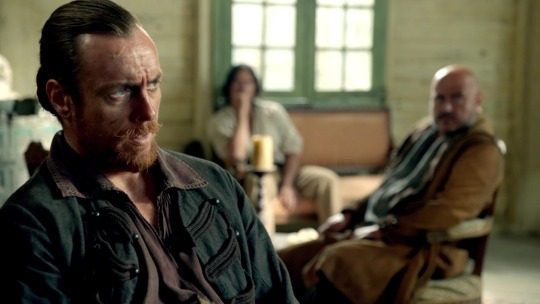
If you’d be more into Poseidon going full Odysseus on Zeus for taking everything from him and then calling him a monster while Medusa takes revenge, do yourself a favor and watch Black Sails! Peak TV. Queer af. Made by Jon Steinberg. [Trigger warnings]
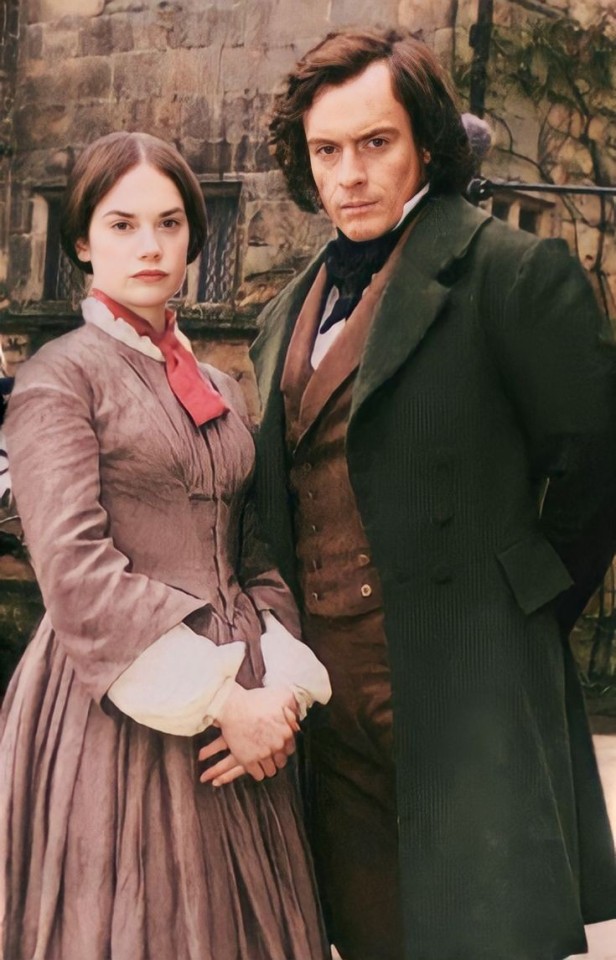
If Sally and Poseidon pining is your thing and you love your Charlotte Brontë, watch the 2006 Jane Eyre with #RuthWilson and #TobyStephens! So much romance, angst and mutual eyefucking… warning: You WILL fall in love with a douchebag! Sorry for that!

Shakespeare Poseidon anyone? A very young and extremely pretty Toby Stephens as Duke Orsino in Twelfth Night. Lots of pining, genderfluidity, confusion and sparks. SPARKS! And a bathtub that will rewire your brain. Something something LGBT will definitely happen to you!

Finally if you love something face paced and modern with great teenage heroes, give Alex Rider on Prime a watch! Toby Stephens is a brilliant villain in S2 with loads of Elon Musk vibes. Poseidon the media mogul asshole? Maybe.

Other highly recommended things from Toby Stephens’ backlist: Cambridge Spies, Photographing Fairies, The Tenant of Wildfell Hall, Mangal Pandey and Agatha Christie’s And Then There Were None.
#toby stephens#black sails#captain flint#james flint#captain james flint#toby stephens masterpost#masterpost#poseidon#pjo#pery jackson#percy jackson and the olympians#john robinson#lost in space#alex rider#mr rochester#edward rochester#jane eyre#jane eyre 2006#twelfth night
188 notes
·
View notes
Text
Ask Byronic Heroes : Is your girl neurodivergent?
Edward Rochester ( Jane Eyre)

Heathcliff ( Wuthering Heights)

Erik ( Phantom of the Opera)

Thomas Sharpe ( Crimson Peak)

Dorian Gray

#jane eyre#edward rochester#mr rochester#charlotte bronte#classic litterature#jane eyre fanart#gothic fiction#gothic romance#jane eyre art#crimson peak#phantom of the opera musical#phantom of the opera#phanart#Dorian gray#the picture of dorian gray#heathcliff wuthering heights#wuthering heights#byronic hero
883 notes
·
View notes
Text

Edward and Jane [jane eyre, charlotte brontë] quick illustration
16/11/23
I don't know why I haven't made any art related to this book. It's been one of my favorites for a few years (since I first read it).
#art#digital art#digital illustration#digital painting#illustration#painting#fan art#book#book fanart#book fan art#jane eyre#charlotte brontë#edward rochester#mr rochester#sketch
262 notes
·
View notes
Text
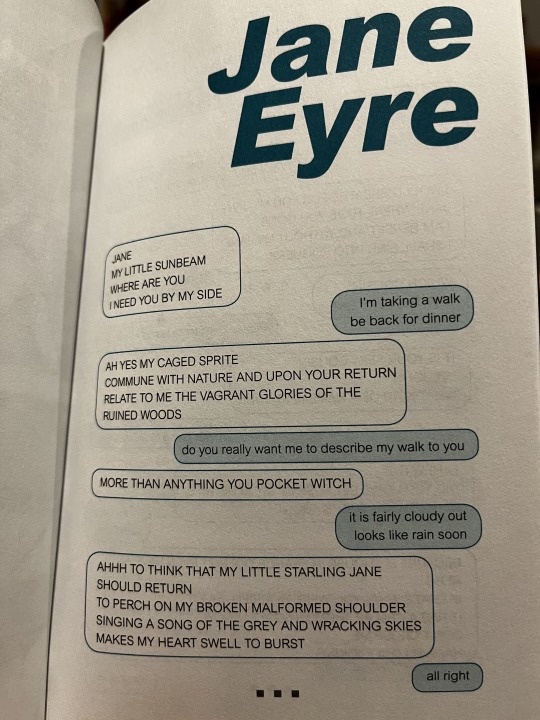

Found on family members’ bookshelf. It’s uncanny.
@tiredtiresias
#jane eyre#ask mr rochester#mr rochester of thornfield#mr rochester#ask blog#charlotte bronte#victorian literature#classic literature#gothic romance#the bronte sisters#Texts from Jane Eyre
230 notes
·
View notes
Text
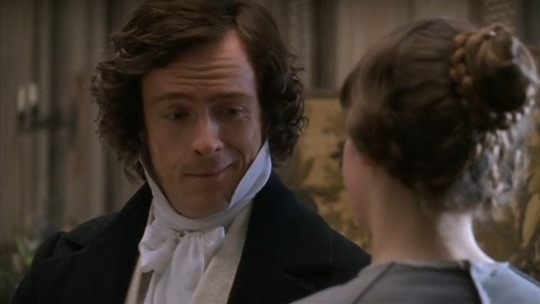
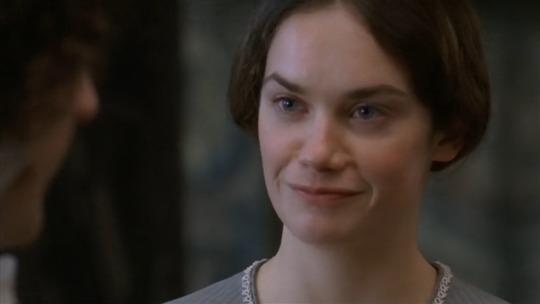
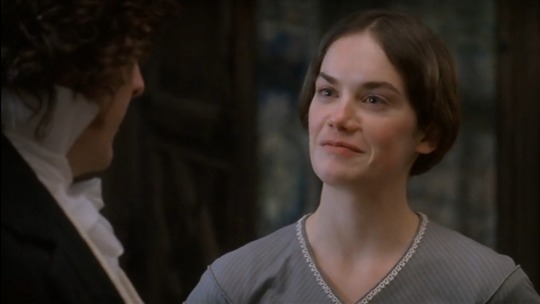

I love how Jane and Mr. Rochester show their smiles and smugness at each other during the money scene in "Jane Eyre" 2006 version. It made me chuckle and they feel like they don't want to separate.
168 notes
·
View notes
